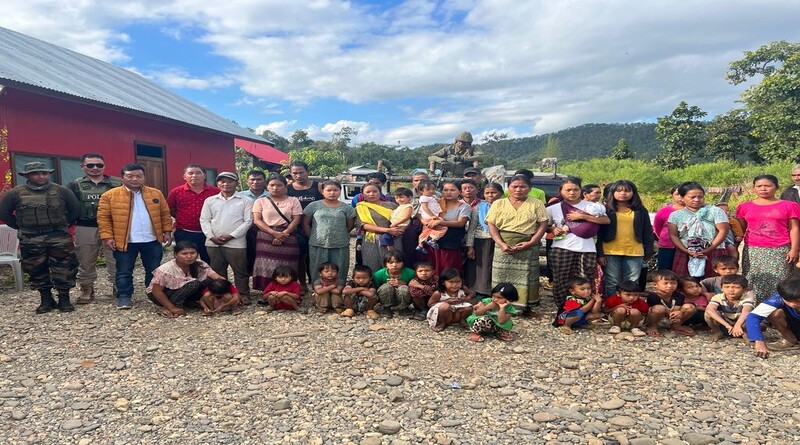Centre asks Manipur government to study representation on removing Kuki-Chins from ST list (The Hindu)

- 09 Jan 2024
Why is it in the News?
The Manipur government has been asked by the Centre to examine a representation seeking deletion of the “Nomadic Chin-Kuki” from the list of Scheduled Tribes in Manipur.
Context:
- The petition advocates that the primary criterion for categorizing Scheduled Tribes in the country should be based on Indigeneity, referencing a Supreme Court ruling dated January 2011.
- The petition specifically highlights the case of the "Zou" tribe, asserting that their origin in Myanmar's Chin state, a foreign territory, was not documented in pre-independence Indian Censuses.
- Consequently, the plea argues against the inclusion of the "Zou" tribe in the Scheduled Tribe list of Manipur.
About Kuki and Zomi Tribes:
- The Kuki-Zomi Tribes represent an ethnic group originating from the Bangladesh region, primarily residing in Manipur and Mizoram in India.
- Also recognized as Chin or Mizo people, they share a unified ancestry and culture.
- Their communication is conducted through various dialects within the Chin-Kuki-Mizo language family, belonging to the Tibeto-Burman branch of the Sino-Tibetan languages.
- The Kuki-Zomi Tribes are interconnected with the broader Zo people, alongside other tribes such as Chin and Mizo.
What is the Process of amendment in the ST List?
- The inclusion or exclusion of any tribe or tribal community from the Scheduled Tribes list is exclusively governed by legislation enacted by the Parliament of India.
- Amendments to the list are effectuated through notifications issued under clause (1) of Article 342, specifying Scheduled Tribes.
- According to a Supreme Court ruling, the authority to modify, amend, or alter the Scheduled Tribes list specified in the notification under Article 342(1) is not vested in State governments, courts, tribunals, or any other entity.
- Contrary to this, the central government asserts that the initiation of proposals for inclusion or exclusion from the ST list must originate from the respective State government.
- The Parliament then takes action based on this proposal.
- The Lokur Committee, in 1965, laid down the criteria employed by the government to designate communities as Scheduled Tribes, and these criteria persist in use today.
- They encompass primitive traits, distinctive culture, geographical isolation, shyness of contact with the larger community, and backwardness.
